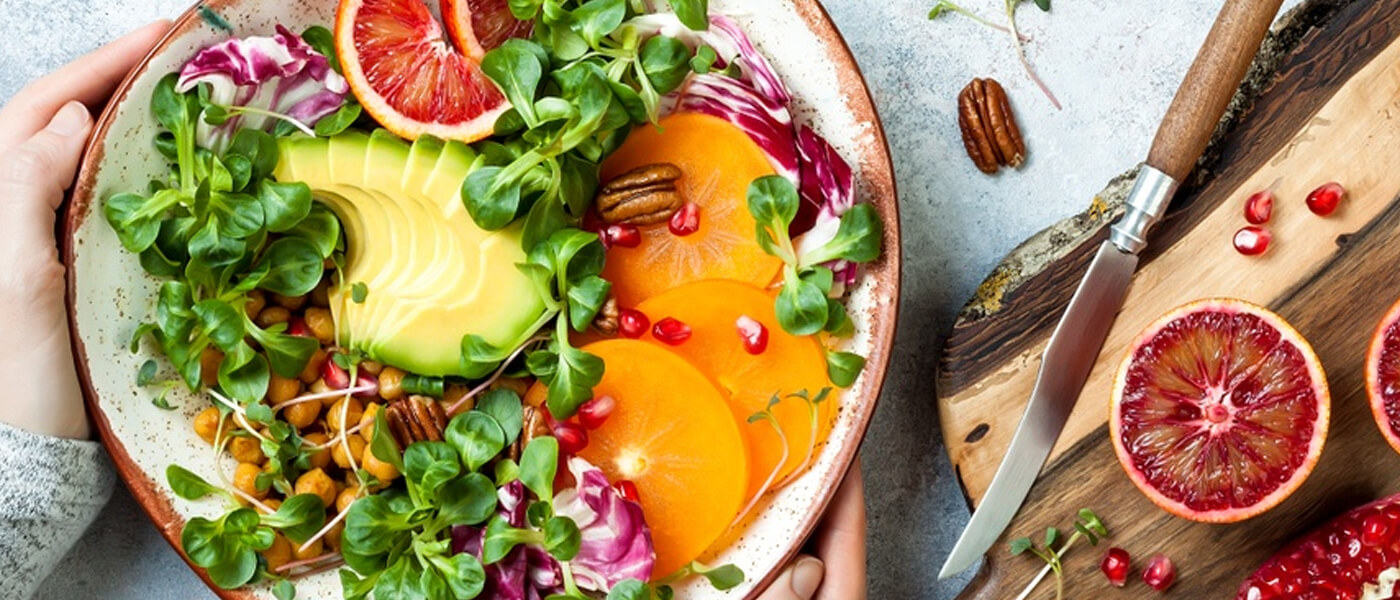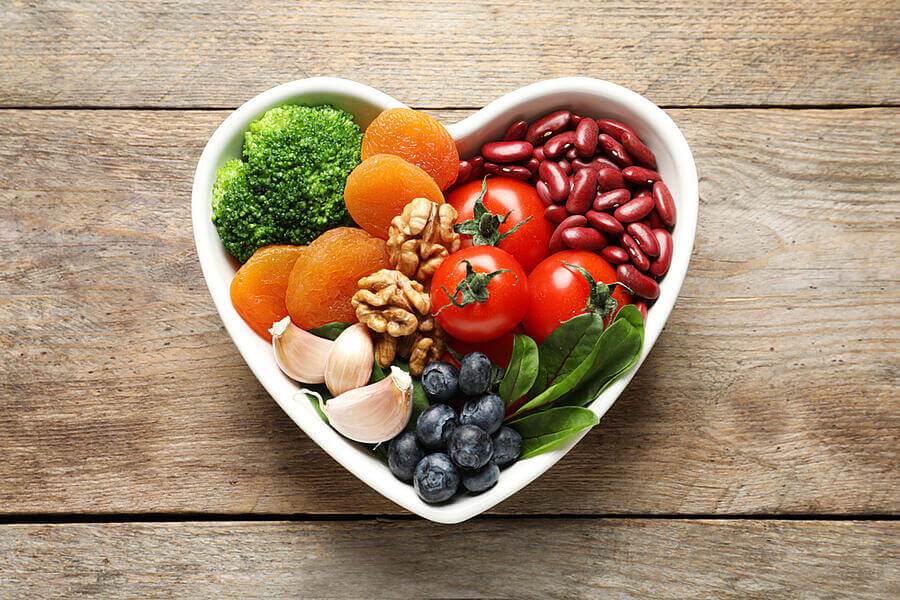- Home
- Residential
- Blog
- A beginner’s guide to plant-based eating!
[Post Date]
A beginner’s guide to plant-based eating!

Sustainability is no longer just a trend, but a lifestyle choice for many people. As more consumers choose to switch from single-use plastics to reusable options, or opting for eco-friendly products as part of their daily routine, there are many other ways for individuals to lead a more sustainable lifestyle. A method few may have considered is switching to plant-based eating.
Does plant-based eating means that you have to abstain from meat? We clear the air and answer some of these questions as part of our beginner’s guide to plant-based eating. You will be surprised that it may be easier than you think!
What is a plant-based diet?
A plant-based diet essentially emphasises on food such as vegetables, fruits, whole grains and legumes, while at the same time, limiting your intake of meats, dairy and eggs. It really depends on how strict an individual wants to be in terms of the diet and what will be the best fit depending on health needs and daily lifestyle.
Some may opt to completely axe animal food products if they prefer, while others might just reduce their intake depending on their own interpretation of a plant-based diet. The beauty of it is that meat and seafood do not necessarily need to be off-limits, instead you can make conscious efforts to cut down on how often you consume those items.

There are a range of diet options that fall under plant-based diets. Some of these examples include:
Pescatarian diet
A pescatarian diet involves eating fish and seafood as a main source of protein, together with vegetable and plant-based foods.[1]
Mediterranean diet
A Mediterranean diet focuses on fruits, vegetables, and whole grains, and it includes consuming less dairy and meat.[2]
Vegetarian diet
A vegetarian diet is a meat-free diet. Depending on the individual, some will include eggs and dairy within their diet requirements.[3]
Vegetarian diet
A vegan diet excludes all animal-based foods.[4]
Benefits of a plant-based diet
There are several benefits when choosing to incorporate a plant-based diet into your daily life. One of the most apparent change will be how it impacts your health. According to Harvard University’s health blog, it states that plant-based diets such as the Mediterranean diet, shows lower risk of chronic diseases, certain cancers, depression and frailty in older age. [5] Beyond preventing diseases, plant-based diets are also effective for treating obesity and boosting energy levels. [6]

Plant-based diets are also better for the environment. Unknown to most people, what we choose to eat makes up a huge proportion of our impact on the environment. Cattle grazing contributes to climate change by producing a lot of gas such as methane and CO2. The United Nations Food and Agriculture Organisation (FAO) estimates that livestock production is responsible for 14.5 per cent of global greenhouse gas emissions. [7] The Worldwatch Institute have even mentioned that this figure could be as much as 51 per cent.[8]
With a significant amount of global emissions coming from animal products, our small choices in diet plays a huge role in helping combat climate change.
Taking the first step towards a sustainable diet
If you are convinced on wanting to move towards a plant-based diet, you might not know where or how to start, especially with so much information available out there.

Here are some additional tips and tricks to ensure a smooth transition to a plant-based diet!
1. Start with a small change:
Instead of jumping straight in and completely eliminating meat from your diet, choose to start with 1 day a week to lower your animal food intake. Meatless Monday is a global movement which encourages people to not eat meat on Mondays in a bid to protect the environment and improve one’s health. Once you are well adjusted with this, slowly increase this habit to 2-3 times a week.
2. Explore your food options:
In Singapore, there are plenty of food options out there that can come in place of meat. From mock meat to mushrooms and even legumes, choosing a plant-based diet can exercise some creativity on how you can keep those meat cravings at bay and gain the required protein from other alternatives.
3. Plan your meals and cook at home
By planning your meals for the week and making them on your own, it is certainly helpful in sustaining plant-based eating for the long haul. This is a great habit to keep where not only does it help you to stick to this commitment, but also ensures your food waste is reduced. In addition, it also gives you a chance to experiment in the kitchen and attempt new plant-based recipes you may have never tried!
Plant-based recipes to get you started
To help you kick-start on this journey, one of Geneco’s ChangeMakers Cultivate Central, have put together plant-based recipes that you can try at home using microgreens you may have grown in your own home garden.
- Quinoa, daikon, radish microgreens and tapioca salad
- Tanghoon soup with buckwheat microgreens
- Raita with sunflower microgreens
A plant-based diet really is not as daunting as it seems and can be attempted by anyone. The key is to start small and to find a flexible diet that you are comfortable with as you choose to reduce your animal product intake. While everyone has their own reasons for adopting it, the benefits it brings to our environment and fighting climate change is undeniable. Many alternatives that can help to build a compromise to enable everybody to take action for the environment, exist through their dietary choices.
References:
- [1] Crichton-Stuart , C (2018, December 6) What is a pescatarian diet?
https://www.medicalnewstoday.com/articles/323907 - [2] Johnson, J (2019, January 18) Our guide to the Mediterranean diet
https://www.medicalnewstoday.com/articles/324221 - [3] Brazier, Y (2020, January 20) What to know about the vegetarian diet
https://www.medicalnewstoday.com/articles/8749#foods - [4]Brazier, Y (2020, January 20) What to know about the vegetarian diet
https://www.medicalnewstoday.com/articles/8749#foods - [5] MacManus, K.D. (2018, September 2016) What is a plant-based diet and why should you try it
https://www.health.harvard.edu/blog/what-is-a-plant-based-diet-and-why-should-you-try-it-2018092614760 - [6] Sissions, B (2019, August 29) Everything you need to know about plant based diets
https://www.medicalnewstoday.com/articles/326176#benefits - [7] Key facts and findings
http://www.fao.org/news/story/en/item/197623/icode/ - [8] Surprising Sources of Air Pollution: 6 Ways Animal Farms Contribute to Poor Air Quality
https://gasp-pgh.org/2020/05/13/surprising-sources-of-air-pollution-6-ways-animal-farms-contribute-to-poor-air-quality/
Image Credits: Nylon Coffee Roasters
Source: The Sustainability Project
